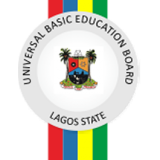
As EKOEXCEL celebrates its fifth anniversary, the Lagos State government’s groundbreaking initiative has proven to be a game-changer in transforming public primary education.
Launched in 2019 by Governor Babajide Sanwo-Olu under the THEMES Agenda, EKOEXCEL (Excellence in Child Education and Learning) was designed to elevate education standards and bridge the learning gap in Lagos State’s public primary schools.
Misan Thorpe, Education columnist, in his study, noted that “Five years on, the programme has recorded significant milestones, reshaped classroom experiences, and delivered measurable learning gains, establishing itself as a beacon of hope for educational reforms across Nigeria and beyond.
Since its inception, EKOEXCEL has systematically improved the foundational literacy and numeracy skills of pupils, empowering them with the tools needed for future academic success. The programme is managed by the Lagos State Universal Basic Education Board (LASUBEB) in partnership with NewGlobe, a technical partner renowned for its innovative, technology-driven educational solutions. By leveraging modern pedagogical methods, technology, and data-driven approaches, EKOEXCEL has successfully moved over 13,000 teachers from analogue to digital teaching methods, reaching nearly a million children across 1,013 public primary schools. The impact of this transformation is evident in the significant strides made in the education sector of Lagos State.
The outbreak of COVID-19 in 2020 presented a unique challenge to education systems worldwide, including in Lagos. EKOEXCEL, however, adapted quickly by launching the EKOEXCEL@home initiative, ensuring continuity in learning despite school closures. The innovative approach combined self-study activity packets, interactive audio sessions, virtual classroom experiences, and WhatsApp quizzes, guaranteeing that pupils, even in the most remote and poorly connected communities, could continue learning. This swift adaptation became a model for other states and regions grappling with similar challenges.
The data speaks volumes about EKOEXCEL’s effectiveness. The 2020-2021 Endline Fluency and Numeracy Evaluation revealed that EKOEXCEL pupils made substantial progress in oral reading fluency and foundational numeracy. An average Primary 3 pupil under EKOEXCEL now reads at nearly the same fluency level as an average Primary 5 pupil before the programme’s launch. In terms of numeracy, the achievements are equally remarkable, demonstrating that the learning gains achieved through EKOEXCEL are substantial and on par with global best practices.
Moreover, a study by Nobel Prize-winning economist Professor Michael Kremer further validated EKOEXCEL’s approach. The study found that early childhood development (ECD) and primary school pupils in education programs employing NewGlobe’s methodology, as used in EKOEXCEL, gained almost an additional year of learning in just two years compared to their peers in traditional schools. These results are unprecedented and have reinforced EKOEXCEL’s standing as a leading educational intervention that aligns with Sustainable Development Goal (SDG) 4.1.1.b, which aims to reduce learning deprivation by ensuring all children can read a simple passage with comprehension by the end of primary school.
The results of the National Common Entrance Examination (NCEE) over the past few years have further demonstrated EKOEXCEL’s success. In 2022, 38 pupils participated in high-stakes examinations, with 13 gaining admission into Federal Unity Colleges. By 2023, this number had increased to 73 pupils, with 50% of candidates scoring 70% and above. The top-performing EKOEXCEL pupils consistently ranked among the best in the country, coming close to the national best scores and showcasing the competitive edge of Lagos State’s public primary schools. Ololade Ganiyat, one of the top scorers in 2023, credited her performance to the motivational cheers and support she received under EKOEXCEL, emphasising the program’s impact on building confidence and enhancing learning outcomes.
In 2024, the upward trajectory continued. Pupils participating in high-stakes examinations further showcased EKOEXCEL’s transformative impact. Out of the 79 pupils who participated, 57% achieved an impressive score of 50% and above. This achievement is significant given the rigorous nature of these examinations. Additionally, 12% of the candidates attained exceptional scores between 90% and 100%, reinforcing the program’s efficacy in preparing pupils for academic challenges. It is noteworthy that 73% of EKOEXCEL candidates scored above the crucial 40% threshold, and 57% secured placements in prestigious secondary schools, including Federal Unity Colleges. This strong showing highlights the program’s ability to create top-performing pupils who are well-prepared for their academic future.
EKOEXCEL’s impact extends beyond academic achievements. The program has created a culture of innovation and inclusivity in classrooms, with teachers using smart devices to deliver engaging lessons and ensure adherence to standardised curricula. Real-time monitoring systems and data dashboards allow for continuous assessment and adaptation, ensuring that both teachers and pupils are always aligned with the program’s goals. Additionally, the emphasis on gender parity has seen more female pupils excel in academics, further breaking down traditional barriers and stereotypes in education.
The programme’s achievements have not gone unnoticed. EKOEXCEL was honoured as the Most Innovative Digital Learning Platform of the Year for two consecutive years at the Titans of Tech Awards. The recognition reflects the program’s consistency, innovation, and passion for excellence, transforming over 13,000 teachers into digital educators equipped with the latest tools and curricula.
EKOEXCEL has also garnered significant international attention, being featured prominently at the last two editions of the Education World Forum (EWF) in London. The 2023 edition of EWF, themed ‘New Beginnings: Nurturing Learning Culture, Building Resilience, Promoting Sustainability,’ showcased EKOEXCEL’s data-driven methodology and its alignment with UNESCO’s views on quality data collection for learning outcomes. This international platform positioned Lagos State as a leader in public education transformation, and the inclusion of EKOEXCEL at such global forums further solidified its reputation as a model of excellence.
As EKOEXCEL completes its first five years, the case for sustaining and expanding the programme to even secondary schools becomes compelling. The program has not only been integrated into the fabric of every classroom in Lagos but has also become a part of the larger community ecosystem, influencing how education is perceived and valued by pupils, teachers, and parents alike. The real-time benefits to pupils are measurable, and the spillover effects on their families and communities are profound.
The sustenance of EKOEXCEL is not just about maintaining the status quo; it is about building on the solid foundation laid in the past five years to achieve even greater heights. The programme has already become a model for other states in Nigeria looking to replicate Lagos’ successes in public education reform. The interest from states like Zamfara, which recently sent a delegation to understudy the EKOEXCEL methodology, underscores its significance as a blueprint for nationwide educational transformation.
Governor Babajide Sanwo-Olu’s THEMES Plus agenda, which builds on the successes of his first term, underscores the importance of inclusive education, gender equality, and youth development. EKOEXCEL aligns seamlessly with these objectives, ensuring that no child is left behind and that every pupil, irrespective of their socio-economic background, has access to quality education.
EKOEXCEL at 5 is more than just a milestone; it is a testament to what can be achieved when innovation, commitment, and strategic planning come together to redefine the future of education. The journey has just begun, and the next chapter promises to be even more impactful.
This article appeared originally on Daily Independent, 11 September , 2024


